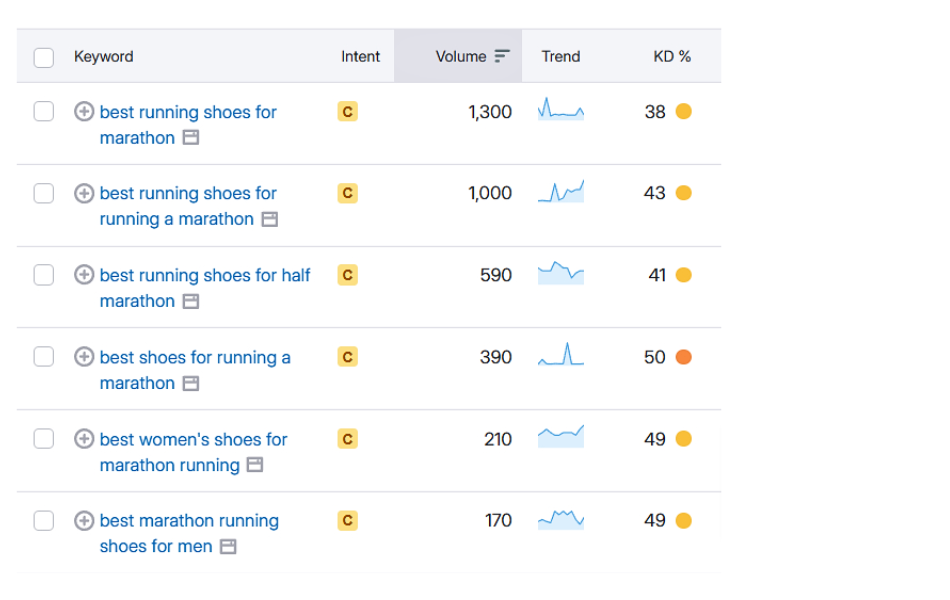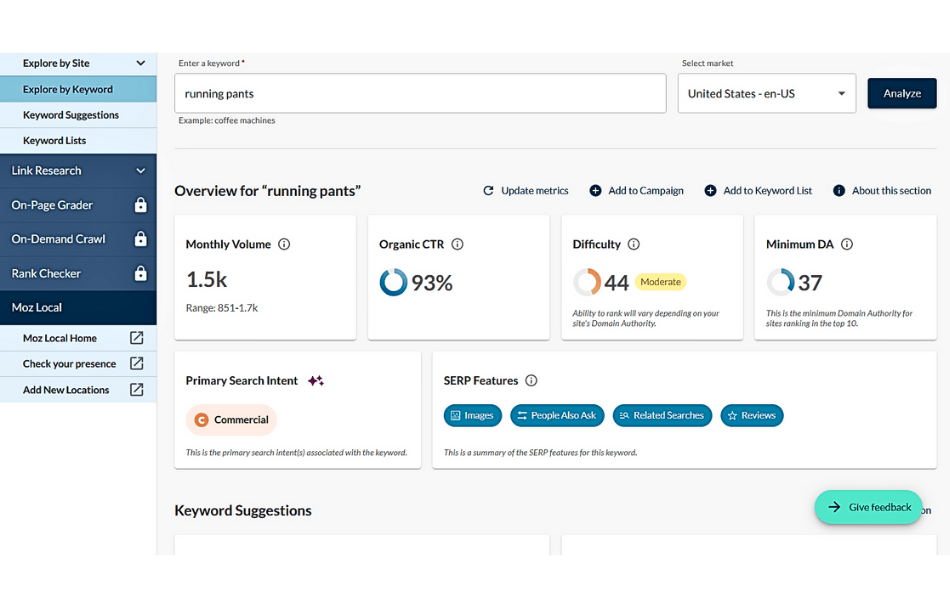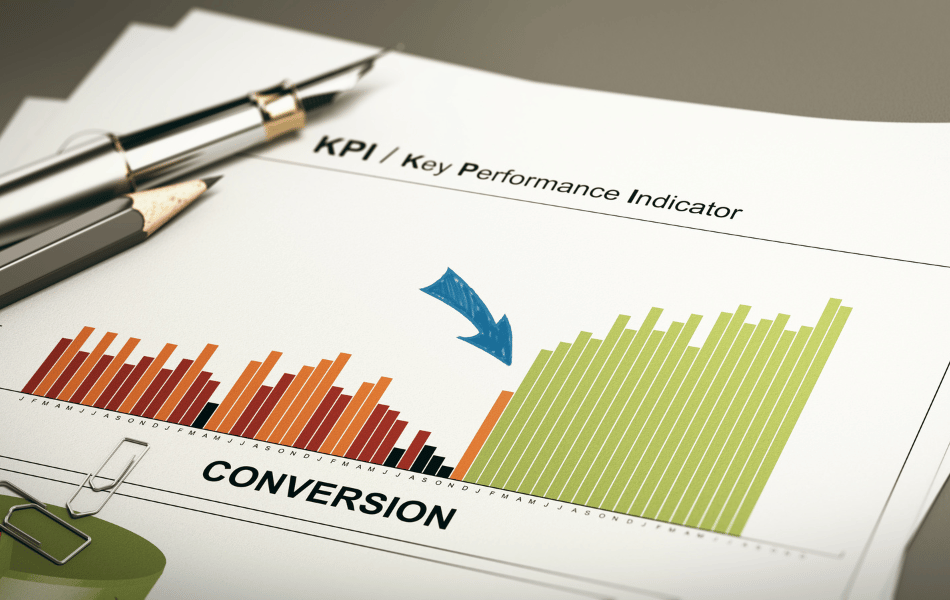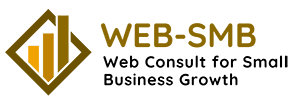Discover How High Intent Keywords Can Attract Quality Leads and Turn Visitors Into Loyal Customers.


Table of Contents
Key Highlights
- High intent keywords are Search Terms that suggest a high probability of the searcher making a purchase.
- Small businesses can leverage these keywords to attract more qualified leads and increase sales.
- By understanding the different types of search intent and using keyword research tools, businesses can identify relevant high intent keywords in their niche.
- It’s essential to optimize website content and product pages to align with the intent behind those keywords.
- By tracking performance and making adjustments as needed, small businesses can achieve sustainable growth through high intent keyword strategies.
Introduction
Small business owners need to stand out in the competitive online world. Knowing search intent and using strong keywords really matters.
Doing good keyword research is more than just finding out what people search for; it’s about knowing why they search.
Search engines like Google can figure out a user’s intent when they search. By matching your website content to that intent, you can greatly increase your chances of drawing the right people – those who are ready to buy!
The Power of High Intent Keywords
For those with tight budgets, getting a good return on investment is very important. High intent keywords can connect you directly to shoppers who are ready to buy. (Source: Traffic Tail)
This means they are close to making a purchasing decision.
Instead of trying to reach everyone and hoping to catch a few interested people, you can concentrate on those who are most likely to make a purchase.
Think about it like this: you wouldn’t go fishing in a lake known for trout if you want to catch bass.
Targeting high intent keywords is similar.
- It helps you to focus on the right audience.
- Pull in customers who are actively looking for products or services like yours.
1. Defining High Intent Keywords

Keyword intent is crucial in SEO strategy.
Not all keywords are the same; some indicate simple interest, while others show a strong desire to buy. These keywords signal readiness to purchase, like “best content marketing tools for small businesses.“
Discovering these valuable keywords is like finding gold – they reveal clear intentions, such as “leather hiking boots for women size 8 waterproof,” instead of generic searches like “shoes.”
Using high-intent keywords can:
- Transform your SEO strategy
- Help you tailor content for specific audiences
- Drive more traffic, conversions, and success for your small business.
2. Why High Intent Keywords Matter?
Imagine someone looking for “best lawnmowers for small yards” and someone else searching for “buy lawnmower online discount.“
- The first person is likely just exploring options. They could be at the start of the sales funnel, gathering information.
- The second person shows strong intent to buy. They are using transactional keywords, meaning they are ready to spend money.
Using these keywords in your content can turn a casual visitor into a paying customer, leading to higher conversion rates. For small businesses aiming to grow, focusing on high intent keywords is crucial for targeting customers ready to make a purchase.
3. WHAT ARE THE BENEFITS?
The beauty of using high intent keywords is that they can bring real results. When you add these important keywords to your online content, you can expect:
- Increased Organic Traffic: High intent keywords attract users seeking solutions, driving more clicks and organic traffic to your website.
- Improved Conversion Rates: Users using high-intent keywords are closer to making a purchase. Matching your content to their needs can help convert them into buyers effortlessly.
- Enhanced ROI: Focusing on high intent keywords is a smart strategy. By targeting those most likely to convert, you can maximize your return on investment.
When you create valuable content for your target audience and optimize it with high intent keywords, you are bringing in the right visitors who are ready to become loyal customers.
Identifying Your High Intent Keywords
Identifying the right keywords is simple.
- Understand your customers and their pain points.
- Think like them to learn about their search queries.
- Use keyword research tools for data on search volume, competition and keyword difficulty.
- Focus your efforts for the best results.
1. The Role of Customer Psychology in Keyword Intent
To truly grasp keyword intent and find valuable buyer keywords:
- It is important to get into the customer’s mind.
- Consider what they want, what frustrates them, and what goals they have.
- What issues are they trying to solve with their search?
If someone searches for “best CRM for small business,” they might face challenges with organization, managing leads, or communicating with customers. Their goal is to find a tool that makes these problems easier.
By knowing these pain points, you can choose keywords that connect better with their needs and make your product or service seem like the perfect fit.
Using buyer keywords well means:
- Predicting their questions.
- Answering their worries.
- Reaching out to their wants.
It is about building a stronger connection, earning trust, and helping them make a smooth buying decision.
2. Tools and Techniques for Uncovering Highest Intent Keywords

Varieties of such tools are available, each offering unique features and insights.
Some popular options include:
These tools provide valuable data on search volume, competition, and related keywords, helping you make informed decisions.
Another effective technique is analyzing your competitors.
- Examine their website content, particularly product sites and blog posts.
- Identify the keywords they are targeting and assess their search results rankings.
This competitive analysis can reveal valuable types of keyword opportunities you may have overlooked.
In addition to using tools, pay attention to search engine features like Google’s autocomplete and “People Also Ask” boxes.
These features provide real-time insights into what a user intent is while searching and can spark ideas for relevant high-intent keywords.
Keyword Type | Examples | Intent Signal |
Informational | how to, what is, guide, tips, tutorial | Seeking information, not yet ready to buy |
Navigational | brand name, website name, “near me | Looking for a specific website or location |
Commercial | best, review, comparison, top 10, alternative | Researching products or services, considering options |
Transactional | buy, order, discount, coupon, shipping, price | Ready to make a purchase |
Strategies for Leveraging High Intent Keywords
Now that you have your important keywords, it’s time to use them.
It’s top priority to include them in your website content, improve product pages, and create strong calls to action that connect with what your audience wants.
Remember, don’t just use a lot of keywords. Mix them into your content naturally to offer real value and gently guide users towards making a purchase.
1. Crafting Content That Matches Search Intent
Creating content that matches search intent is key to good content marketing.
- If someone searches “how to choose the right CRM,” they want a post or guide, not a product page.
- A search like “buy CRM software online” shows they prefer transactional content, such as a pricing page or customer reviews.
So, it is important to know what type of content fits the intent behind each keyword.
Are people looking for detailed information, a quick answer, or a way to buy?
Making sure your content matches their intent creates a smooth and satisfying experience.
This strategy boosts search engine rankings and increases user engagement. Visitors stay longer, explore more pages, and become customers.
2. Optimizing Your Website for High Conversion Keywords

Improving SEO goes beyond adding keywords to blog posts.
- Optimize your website, focusing on product pages for high-intent keywords to boost sales.
- Use keywords in page titles, meta descriptions, headers, and image alt text naturally.
- For example, if selling organic dog food, include “best organic dog food for sensitive stomachs” on the right product page.
- Use simple language highlighting benefits and features to meet user needs.
- Continuously monitor SEO performance and adjust based on user behavior.
- Search trends for more high-intent traffic.
Overcoming Challenges with High Intent Keyword Strategies
High intent keywords are strong, but creating a good strategy can be hard. You may face tough competition for top spots, especially in a busy market. Finding the right mix of broad and specific keywords can also be difficult.
But these problems are not impossible to solve.
Focus on:
- Make helpful and quality content for your target audience.
- Build a strong backlink profile
- Check your SEO performance often
You can successfully overcome these challenges and see steady growth.
1. Addressing Competitive High Intent Keywords
In competitive markets, ranking for high-intent keywords can be challenging due to strong competition. However, strategic planning can help you overcome this challenge.
- Focus on what matters. Not all high intent keywords are the same.
- Choose the ones that are most important to your products or services.
- Make sure they fit with your target audience.
- Don’t try to chase every popular keyword.
- Look for a mix of high and medium competition keywords.
- Mix up your marketing tactics.
- While SEO is crucial, remember to explore other avenues to connect with your audience like PPC, social media marketing, and email campaigns.
These methods can help you reach more people.
2. Balancing Broad and Specific High Intent Keywords
While focusing on specific long-tail keywords can be tempting, it’s important to balance broad and specific high-intent keywords.
If you only focus on very specific keywords with lower search volumes, reaching many people may be challenging. On the other hand, using only broad terms might make it tough to stand out in a crowded market.
Finding a middle ground is essential.
If you sell running shoes, target phrases like “buy blue running shoes size 9,” but also include broader phrases like “best running shoes for marathon training” or “compare running shoe brands.”
To reach a wider audience of potential buyers, consider using a mix of broad and specific high-intent keywords in content like comparison articles or buyer’s guides. This strategy aims to cater to users at various stages of a customer journey and the buying journey, attracting diverse high-intent searchers.
Real-World Success Stories
High intent keywords are powerful for small businesses. Local bakeries ranking for “custom cakes” and online stores attracting global customers through targeted product descriptions show the impact of understanding and meeting audience needs on your website.
These success stories can inspire small business owners looking to grow sustainably with SEO.
Case Study: Small Business Wins with High Intent Keywords
1. Zapier
Zapier, an automation tools company, boosted their online presence with high-intent keywords. Their SEO strategy included creating 25,000 landing pages optimized for specific long-tail keywords. These pages provided tailored content for users’ needs, resulting in enhanced performance and client satisfaction. (Source: SocialBu)
2. Cognism
Cognism, a B2B data provider, improved its SEO strategy by targeting high-intent keywords. This focus on commercial intent keywords resulted in a substantial increase in conversions, generating $441,000 in revenue. (Source: Moz)
Next Steps After Identifying High Intent Keywords
Once you find those important high intent keywords, your work isn’t finished.
You need to use them smartly in your marketing plan.
- Create content.
- Improve your website.
- Regularly check how well you are doing.
Your high intent keyword strategy should keep changing. It needs to adjust to changes in what people search for and shifts in the market.
1. Integrating High Intent Keywords into Your Marketing Plan
A good SEO strategy involves:
- Placing high-intent keywords throughout your online presence.
- Adding relevant keywords to your current content.
- Creating new, engaging content like blog posts, infographics, or videos.
- Using keywords in social media posts and profiles to attract the right followers.
- Running targeted ads with high-intent keywords to reach potential customers.
- Matching your online presence with what your ideal customer needs and searches for.
- Regularly offering useful content to become a reliable resource and increase sales.
Integrating high-intent keywords into your marketing plan boosts online visibility, effectiveness and attracts the right audience, those ready to take action.
2. Monitoring and Adapting Your High Intent Keyword Strategy
The world of SEO is always changing. Your keyword strategy should change too.
- Keep an eye on your website’s performance.
- Use analytics tools to see what is working and what needs to change.
- Track your keyword rankings and watch for any big changes.
If you find it hard to rank for some keywords, consider changing your content strategy or seeking professional SEO services.
When creating new content-
- Ensure it matches current search intent.
- Stay updated on industry trends
- Be aware of search engine algorithm changes.
By watching and adjusting your approach, your high intent keyword strategy can remain effective, driving qualified traffic, lifting conversions, and supporting your business’s success in the fast-changing digital world.
Conclusion – Keyword research for small business success online
In SEO, knowing and using high intent keywords can really help small businesses grow. These keywords are important for getting qualified leads and increasing sales.
By matching your content to what users are searching for, you can get seen more online and increase your business income.
Finding and using these keywords smartly can help your small business succeed in a tough digital world. Keep an eye on your keyword strategy and change it as needed to stay effective.
Use high intent keywords to boost your online presence and see real results for your small business.
FAQs
High-intent vs low-intent keywords - what's the difference?
High-intent keywords are search terms used by users ready to make a purchase or take immediate action, like “buy wireless headphones” or “order pizza near me.” These users need minimal convincing and are close to completing a transaction.
Low-intent keywords are used by users in the research phase, seeking information or solutions, such as “benefits of noise-cancelling headphones” or “how to choose running shoes.” They require more guidance and information before making a decision.
How do you determine if a keyword is high intent?
Understanding user search intent is crucial. Keywords indicating commercial or transactional intent, such as “buy,” “discount,” “review,” or “compare,” signal high intent and reflect the buying stage of users.
Can high intent keywords vary by industry?
High intent keywords vary by industry. Understanding what your target audience seeks when they’re prepared to make a purchase is crucial. Identify popular transactional keywords in your sector.
What's the difference between high and low intent keywords?
High-intent keywords indicate readiness to purchase, carrying commercial intent. Conversely, low-intent keywords signal users in the early research stages or seeking information.
Are high-intent keywords beneficial for small business owners?
High-intent keywords attract ready-to-buy customers, boosting conversions, improving ad efficiency, and bringing higher-quality traffic. They help small businesses stand out and connect directly with those looking to purchase or engage.
